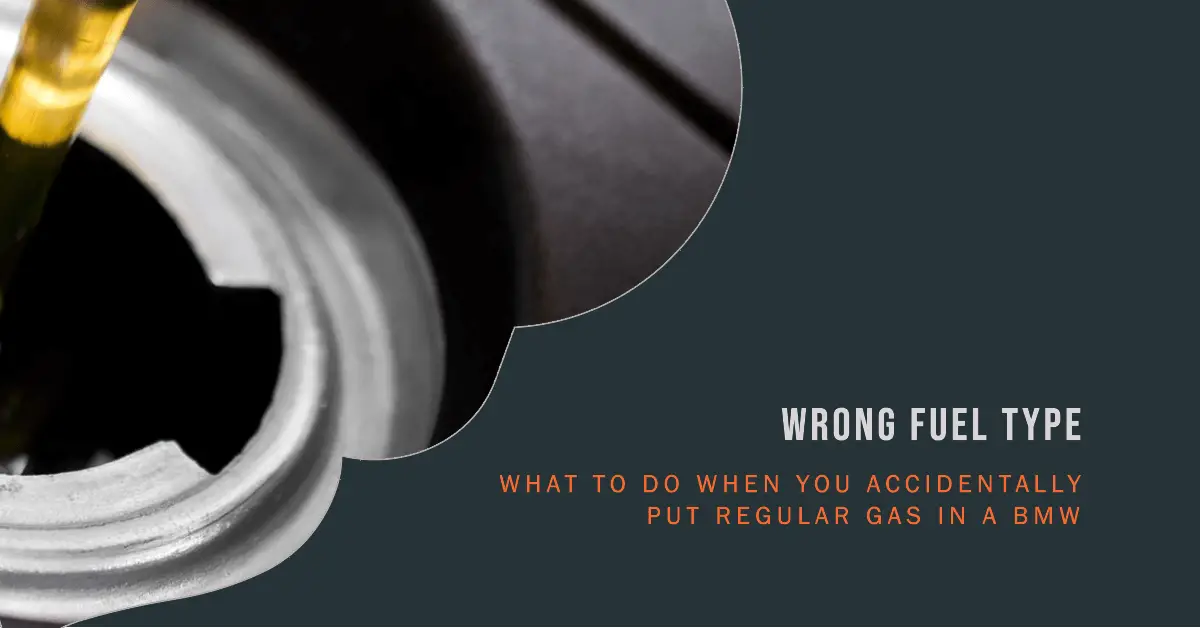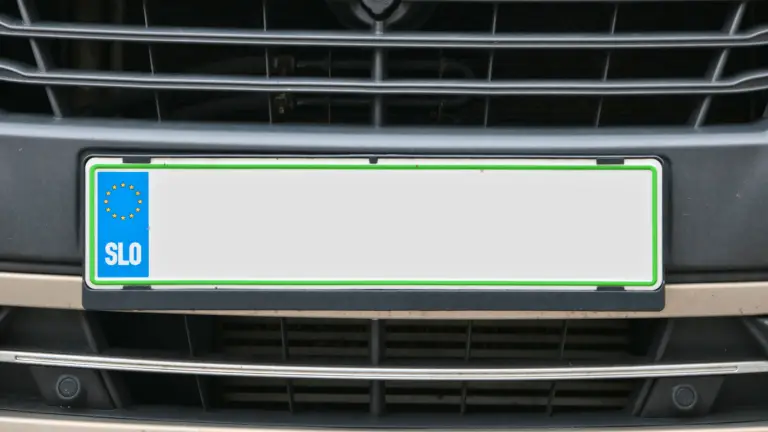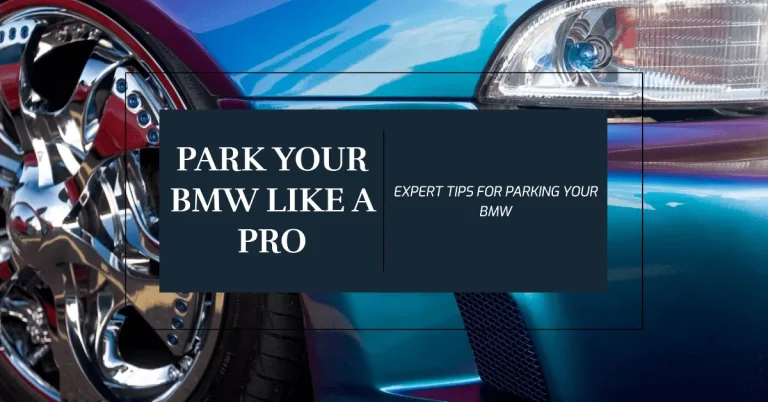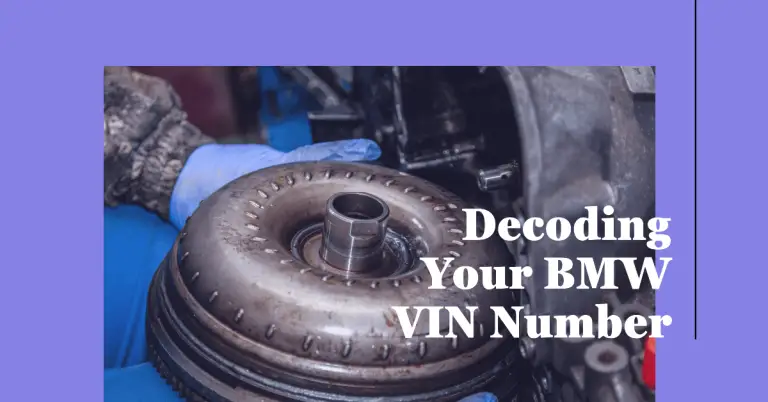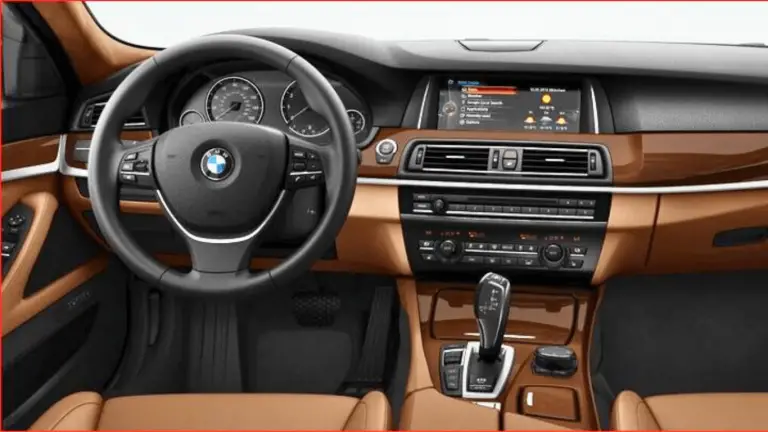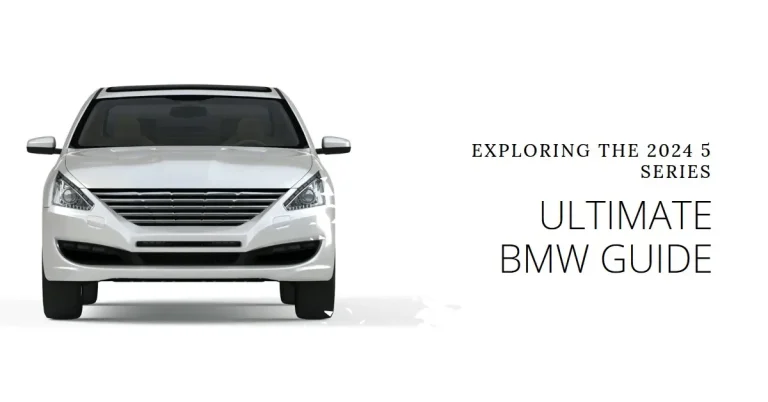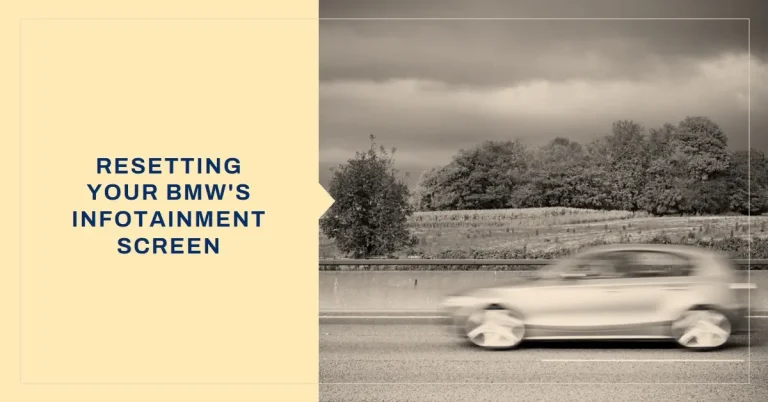Accidentally Put Regular Gas in a BMW – What to Do Next
Have you ever been in a rush and accidentally grabbed the wrong gas nozzle at the station? Before you know it, your prized BMW is filled up with regular unleaded gasoline instead of the premium fuel it requires.
We’ve all made this mistake before. But don’t panic! Even though it’s not ideal, there are steps you can take to minimize any potential engine damage to your BMW.
This complete guide will outline exactly what to do next if you accidentally put regular gas in a BMW. We’ll cover:
- How to safely drive it to the nearest BMW service center
- Flushing out the fuel system correctly
- Using fuel additives to increase octane
- Switching to premium gasoline to prevent long-term issues
- Signs of engine damage to look out for
- How to prevent it from happening again
With some quick action, your BMW can be back running smoothly with premium fuel once again.
When Should You Notice the Wrong Regular Gas in Your BMW?
There are a few key times when you may realize your BMW has been filled up with regular gasoline instead of premium:
- Right after filling up at the gas station – You may see the “Regular” label on the pump and check your receipt to confirm the wrong grade.
- When the engine starts running rough – The BMW engine may stall, misfire, or hesitate when starting up or accelerating after filling up with regular gas due to lower octane.
- Reduced engine performance and acceleration – Lack of premium fuel can cause knocks, pings, and loss of power when driving as the engine struggles to adapt.
So be on the lookout for these signs shortly after a fill-up, and check your receipt to confirm if you accidentally used regular unleaded. The sooner you realize the mistake, the quicker you can take corrective action.
Is It Safe to Drive with Regular Gas in a BMW?
The good news is yes, it is safe to drive a BMW using regular gasoline, at least for short distances and gently.
However, for optimal engine performance and longevity, BMWs absolutely require premium 91+ octane gasoline. Lower octane can eventually lead to damaging engine knock and pinging over time.
Here are some tips for safely driving with the wrong regular gas in your BMW’s tank:
- Gently drive under 50 mph when possible to reduce strain on the engine.
- Accelerate lightly and avoid aggressive throttle input.
- Keep RPMs under 3000 if you can to minimize knock.
- Use the highest octane regular gas next fill up, usually 89, until you can get it serviced.
- Schedule an appointment ASAP at your BMW service center.
The key is to take it easy on your BMW and get it serviced immediately when using the incorrect octane gas to prevent any lasting damage.
How to Safely Drive to the Nearest BMW Service Center
Once you’ve realized you put regular gas in a BMW, the next step is to carefully drive it to the closest BMW mechanic or dealership to have the fuel system flushed.
Here are some tips for driving safely on regular gasoline to get it serviced:
- Drive under 50 mph – Higher speeds put greater strain on the engine which requires premium fuel. Take back roads if necessary.
- Accelerate gently – Avoid aggressive throttle input or quick acceleration which could cause knocking with the lower octane.
- Keep RPMs under 3000 if possible – Higher RPMs increase risk of engine knock or detonation so keep revs low.
- No spirited driving – Performance will be reduced, so avoid any aggressive cornering or street racing.
- Use the highest octane regular gas – 89 octane will be better than 87 until you can get it serviced.
- Schedule an appointment ASAP – Get it into the shop promptly for fuel system flushing.
Following these tips will allow you to safely get your BMW to the mechanic to have the regular gas removed from its fuel system.
How BMW Mechanics Flush the Fuel System
Once at the BMW service center, what exactly will they do to flush out the lower octane gas? Here is the step-by-step process:
- Drain the fuel tank and lines – They will remove all fuel from the tank, fuel injection system, and supply lines.
- Refill with premium fuel – Fresh premium 91+ octane gasoline is added back to refill the empty tank.
- Use a detergent fuel injector cleaner – This helps clean any debris or deposits from the lines and injectors.
- Replace the fuel filter – The filter is changed to get rid of any contaminants from wrong fuel.
- Perform additional engine diagnostics – The mechanic will do a full scan and test for any knocking, misfires or performance issues.
The fuel system flush removes all traces of the regular gas from your BMW’s engine and components. This process helps minimize any potential short or long-term engine damage.
Using Fuel Additives to Boost Octane
If you can’t get into the shop right away, another option is to use fuel additives to increase the octane level in your tank:
- Adding octane booster to the tank – Higher concentrated formulas can raise octane by up to 4 points when added to a full tank.
- Start with a partial tank of premium – Fill up half a tank with fresh 91+ octane gas to dilute and boost the lower octane.
- Use the dosage listed on the bottle – Follow instructions so you don’t use too much additive which could damage seals or sensors.
Octane boosters and premium gasoline can help offset the lower octane regular gas until you can have your BMW completely flushed by the mechanic. Just don’t rely on them long-term.
When to Expect Engine Issues from Wrong Regular Gas
How quickly can your BMW engine be affected by accidentally using the wrong pump at the gas station? Here’s when issues may arise:
- Immediate effects – Stalling, hard starting or rough idle immediately after fill-up.
- Short term effects – Noticeable power loss, knocking noises or check engine light within a couple days or weeks.
- Long term effects – Ongoing performance problems, accelerated wear, and engine damage over months.
The good news is a properly maintained BMW should be able to handle a single tank of regular gas without catastrophic damage. But repeated use of regular unleaded gas over time significantly increases the risks.
How Many Times Can You Put Regular Gas in a BMW?
What if you accidentally filled your BMW with regular gas more than once? Here are the risks:
- Using regular gas once shouldn’t cause permanent engine damage. Get it flushed and switch back.
- After two to three times, you may begin experiencing sustained performance issues if you haven’t had the system flushed.
- More than three times using lower octane gas can definitely cause accelerated internal wear, gummed injectors, and loss of power over months.
- Repeatedly using regular unleaded gas instead of premium significantly raises your risk of internal engine damage over time.
The key is to minimize the number of times your BMW see lower octane regular gas. If it occurs once or twice, a flush should prevent lasting issues. But ongoing use will take its toll.
Signs of Engine Damage from Using the Wrong Gasoline
How can you tell if accidentally using the wrong fuel in your BMW has led to engine damage? Watch for:
- Persistent knocking or pinging – This metallic sound from the engine bay indicates premature ignition or detonation.
- Misfiring cylinders – Rough idle, sputtering acceleration or reduced power in specific cylinders.
- The check engine light comes on – Any fuel or ignition issues will trigger the onboard diagnostic light.
- Failed emission test – Lower octane gas can cause high hydrocarbon emissions or catalytic converter damage.
- Performance problems – Lack of power, reduced MPG, stalling and other drivability issues.
If you notice these warning signs after putting regular gas in a BMW, stop driving it and have it serviced immediately. The longer you operate with damage, the more repairs will be needed.
How to Prevent Putting Regular Gas in Your BMW Again
After all this, you probably want to avoid making this wrong fuel mistake in the future. Here are some tips:
- Only use the specific premium grade pump – Take note which pump is 91+ octane and only use that one.
- Attach a reminder note to your gas cap – A simple note saying “Premium Only!” can jog your memory.
- Use a higher octane biodiesel like Opti-Lube – This clean burning diesel alternative is safe for BMWs and won’t cause damage.
- Slow down and pay attention – Avoid distractions when refueling and double check the octane grade.
Staying diligent at the gas station is key, but mistakes still happen. Now you’ll know exactly what to do next time regular gas ends up in your BMW’s tank.
Switch Back to Premium Gasoline to Avoid Further Issues
Finally, after addressing the wrong regular gas, it’s crucial to continue using premium 91+ octane gasoline in your BMW for proper performance and longevity:
- Fill up with premium next tank – Don’t wait, get quality fuel back in as soon as possible.
- Use premium gas from now on – Consistently using the correct octane avoids problems.
- Add octane booster if needed – If you notice knocks or pings, use a booster as a precaution.
- Get it serviced if problems persist – Lingering issues may indicate lingering damage that needs repair.
By safely driving to the mechanic for a system flush and promptly switching back to high octane gasoline, you can get your prized BMW back up and running smoothly again after the accidental wrong fuel mishap. Just be more careful next time at the pumps!
Conclusion
Accidentally using regular 87 octane gasoline in a BMW can certainly be alarming. But some quick action on your part can minimize any potential engine damage.
- Carefully drive it to your BMW mechanic for a complete fuel system flush service.
- Consider adding octane boosters in the meantime if you can’t get in for service right away.
- Follow safe driving tips to prevent engine knock during the short drive to the shop.
- Have your BMW serviced promptly to remove all traces of the wrong gasoline.
- Give your BMW fresh premium grade 91+ octane fuel moving forward.
By following these steps after putting regular gas in a BMW by mistake, you can avoid any short or long-term engine issues. Just be diligent when fueling up, and you’ll keep your BMW’s high performance engine protected with the proper premium gasoline it requires.

